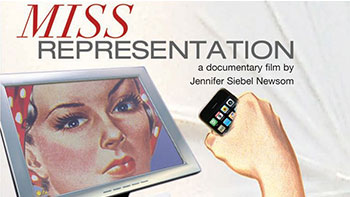Amy Zucchero, Campaign Director for MissRepresentation.org
In all instances the women spoke of the common qualities female leaders bring to their positions, which, if embraced by others, could completely alter our culture. Mainly they spoke of what we call transformative leadership, which includes characteristics like collaboration, empathy, empowering others, and creating a “win win” situation for all. These are often called “feminine qualities” and we see time and time again that they can be more effective than the traditional male “command and control” style of leadership.
In addition to the examples that Pat Mitchell mentions in this clip, I think about Secretary Clinton and her ability to collaborate with world leaders to find peaceful solutions. Or Indra Nooyi CEO of one of the biggest corporations in the world, PepsiCo, who is empowering others through the recently launched Women’s Inspiration Network to increase diversity in the workplace and invest in female entrepreneurs globally. Just two of thousands of examples.
Yet- why do we then find so many people shying away from embracing such effectiveness? It often has to do with language and the negative connotations associated with concepts like “feminine leader.” We are taught to believe that to be “feminine” is to be weak. As Mitchell mentions in this clip, the media is often responsible for perpetuating this myth.
Miss Representation focuses on our need to shift the societal mindset around leadership and begin to redefine the meanings of words like “masculine” and “feminine.”
Collaboration and empathy are not signs of weakness – they are strengths that both men and women can bring to leadership. So while we recognize and celebrate the abilities of women, we must also encourage more men to embrace these same skills in themselves.
When that happens, we will truly see a more representative and effective leadership.



